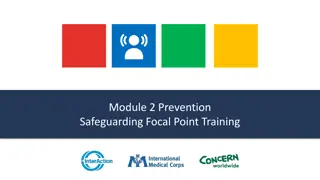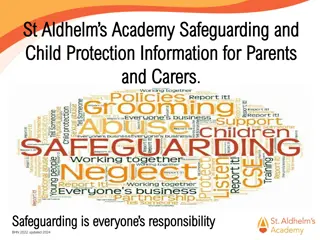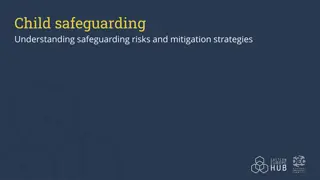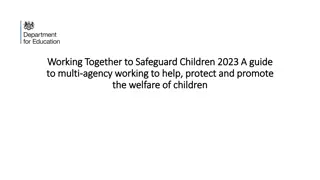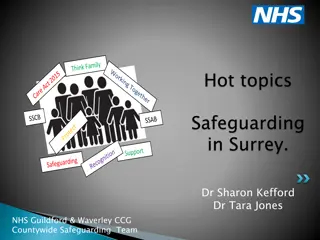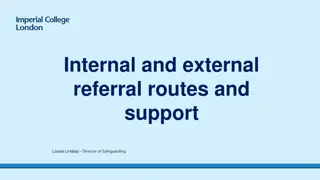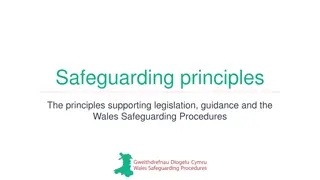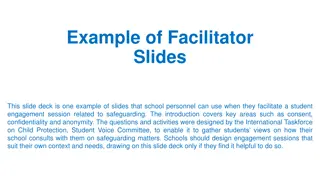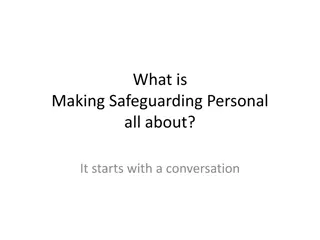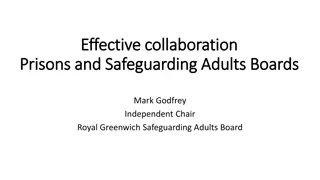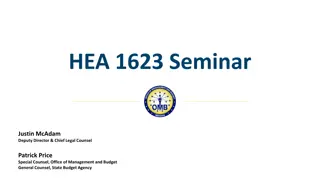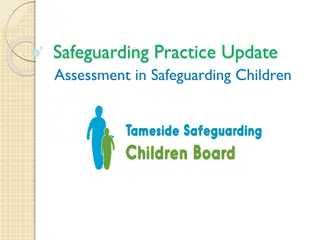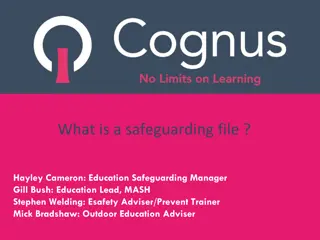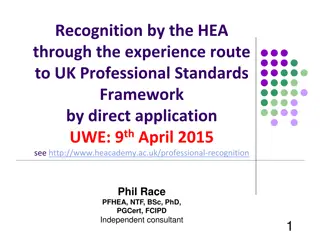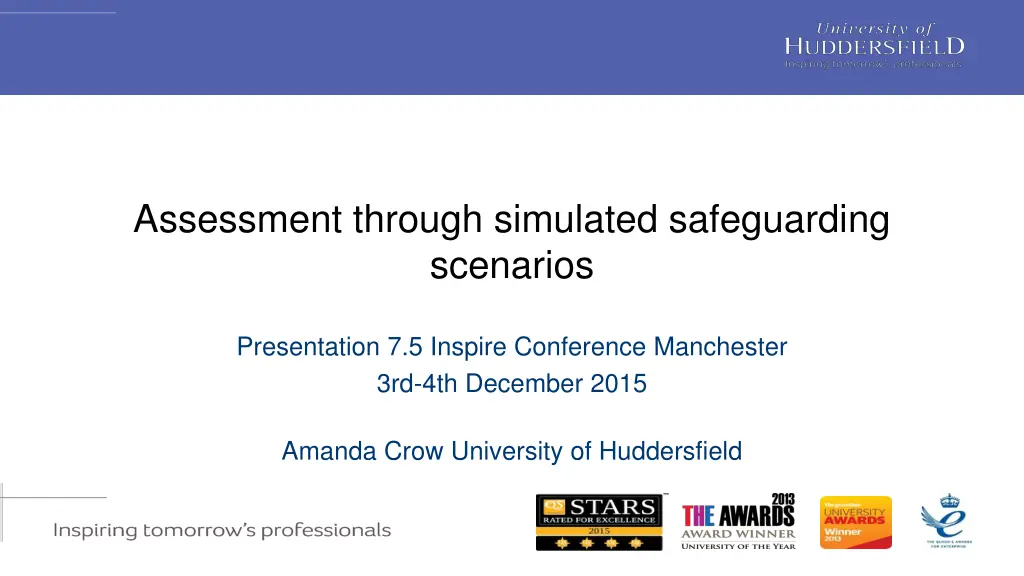
Innovative Safeguarding Assessment Strategies Revealed
Discover innovative approaches to oral assessment in safeguarding scenarios presented at the Inspire Conference. Explore the practicalities, processes, and ideas for enhancing assessments in safeguarding children and young people. Gain insights into a module designed for undergraduate students and learn about a unique assessment model combining online tests and practical oral exams. Enhance your skills in identifying and addressing the needs of children, advocating for their well-being, and collaborating effectively with professionals and parents.
Download Presentation

Please find below an Image/Link to download the presentation.
The content on the website is provided AS IS for your information and personal use only. It may not be sold, licensed, or shared on other websites without obtaining consent from the author. If you encounter any issues during the download, it is possible that the publisher has removed the file from their server.
You are allowed to download the files provided on this website for personal or commercial use, subject to the condition that they are used lawfully. All files are the property of their respective owners.
The content on the website is provided AS IS for your information and personal use only. It may not be sold, licensed, or shared on other websites without obtaining consent from the author.
E N D
Presentation Transcript
Assessment through simulated safeguarding scenarios Presentation 7.5 Inspire Conference Manchester 3rd-4th December 2015 Amanda Crow University of Huddersfield
Aims To share with you a creative oral assessment process To explain the processes and practicalities involved in implementing the assessment To share some ideas for refining the assessment and transferring the model
The module Safeguarding Children and Young People Undergraduate framework- BA (Hons) Childhood Studies, Early years, Youth and Community and Religion and Education 146 Second year students 30 credit module 30 hours lecture-1 hour 45 minutes
The assessment Two parts 20% timed online test 80% practical oral exam- student assessed orally on their ability to apply their learning and research in a real scenario and understand implications for their practice
Practical oral Students preparing for the world of work with children and young people need to have the skills to: Identify and assess the needs of children Advocate on behalf of the child Share sensitive information appropriately Co-operate with other professionals Work in partnership with parents Safeguarding children is everyone's business, children are best protected when professionals are clear about what is required of them. (HM Government 2015)
In lectures Lectures include- policy and professional practice Visiting speakers- content suitable for the research element Peer learning activities Case study is given to the student 2 weeks before assessment- suitable to their practical experience and course
Management of assessment 1. Voice of the child 2. Parents perspective 140 students, 2 rooms, 8 academic staff and two administrators 4 members of staff at a station in each room 4. Student research 3. Professional perspective
The process 1. Voice of the child 2. Parents perspective Students arrive 10 minutes early Rotate after 5 minutes Notes used for research pitch Staff complete rubric 4. Student research 3. Professional perspective Within 20 minutes all stations assessment complete
Encourages critical reflection through different lenses (Brookfield 1995) Process is transferable- could be used to embed employability in other modules Prepares students for future work practice Enables students to be research active
There should be opportunities for mock tests The teaching methods used in this module helped me to learn I was nervous about the case study but really enjoyed it I think everyone should have safeguarding knowledge I now understand why it is important to protect the child
Where next? Some ideas Peer learning: experimenting with triads to develop research knowledge Use of IT to streamline administration processes
References Brookfield, S. D.(1995). Becoming a Critically Reflective Teacher. 1st edn. San Francisco: Josey-Bass Inc. H M Government (2015). Working together to safeguard children. Retrieved from http://www.workingtogetheronline.co.uk/index.html. Topping, K.J. (2007). Trends in Peer Learning. Educational Psychology, 25 (6), 631-645. doi: 10.1080/01443410500345172.

